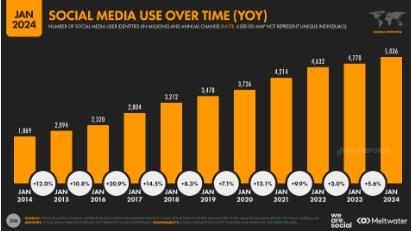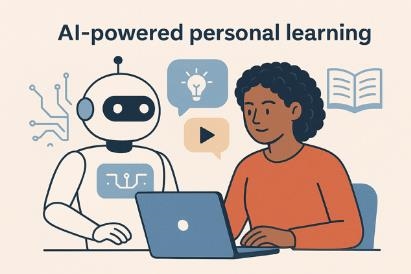In 2025, people will stop using traditional social networking apps but maintain using messaging apps. This trend shows that people seek digital interactions that are calmer and more controllable in a world full of noise and too many algorithms.
There are still more than 5.3 billion social media accounts in use around the world, and that number grows by 4–5% per year. But information on uninstallations reveals that more people are quitting apps that take a lot of effort and emotional investment. Messaging applications make it possible to chat to one person or a small group of people in private. There are no commercials, arguments, or endless scrolling like there are on social media.
There are a few reasons why this is happening, according to experts: consumers want direct, meaningful contact that isn’t affected by social comparison or algorithmic prejudice. They also care more about privacy, so they’re less willing to give over a lot of data. Finally, consumers are bored of apps and prefer simpler, less intrusive solutions. WhatsApp, Telegram, and Signal are becoming very safe places to talk about business and personal difficulties because they are private and based on trust.
This is a good thing for marketers and IT companies since it makes them reassess their ideas. Brands can’t merely hope that a lot of people will talk to them on social media anymore. Messaging apps, on the other hand, are quickly becoming the most popular way for people to get direct value from businesses on their own terms. These apps are getting better because they have AI-powered chatbots, personalized alerts, and safe ways to pay.
Messaging apps are the best way to stay off of social media because they leverage AI insights and designs that keep your information safe. Instead of pulling back from being connected, they are moving toward a more attentive and controlled online presence by caring more about quality than quantity.
**Why do people get rid of social media yet keep messaging apps?**
– *Algorithm Fatigue and Emotional Overload:* People can get tired of social media feeds that never cease delivering addictive, emotionally driven stuff.
– *Data and Privacy Concerns:* Messaging apps usually don’t ask for as much personal information and employ end-to-end encryption, which is good for people who wish to protect their privacy.
– *Focused Communication vs. Broadcast Noise:* Messaging is more about being honest with those you know than about sending out things that make people judge and compare.
*Storage and Performance of the Device:* Apps for social media that use a lot of media take up a lot of space and battery life. Taking them away frees up resources without halting communication.
– *The Growth of AI and Smart Automation:* Messaging apps are required because AI-powered chatbots and helpers make individuals considerably more productive.
**What’s happening in the world of business
There are more than 1.9 billion people that use TikTok every month, but it loses a lot of them since a lot of people prefer quieter, less showy areas. More and more people are using conversational commerce. For example, marketing teams that use social listening on messaging apps say they get a lot more return on investment. The virtual influencer business, which is worth $37.8 billion, shows how big social media can be. But messaging apps enable individuals engage with one other in modest, important ways. Generative AI helps companies save time and get more people involved, especially in interactive promotions and conversational customer service.
People aren’t giving up social media; they’re just adjusting the way they interact with others for this decade and beyond. Messaging apps are the next step in meaningful digital engagement since they protect your privacy, are fast, and are getting more and more AI that interacts with them. They stop talking loudly and about a lot of things and start having scheduled, focused interactions.
The digital detox movement isn’t about saying no; it’s about accepting quality, control, and real connection in the middle of all the noise. People are slowly changing how they talk to each other online. They are getting closer to a balance between being public and private, which will change how people interact online for a long time.




